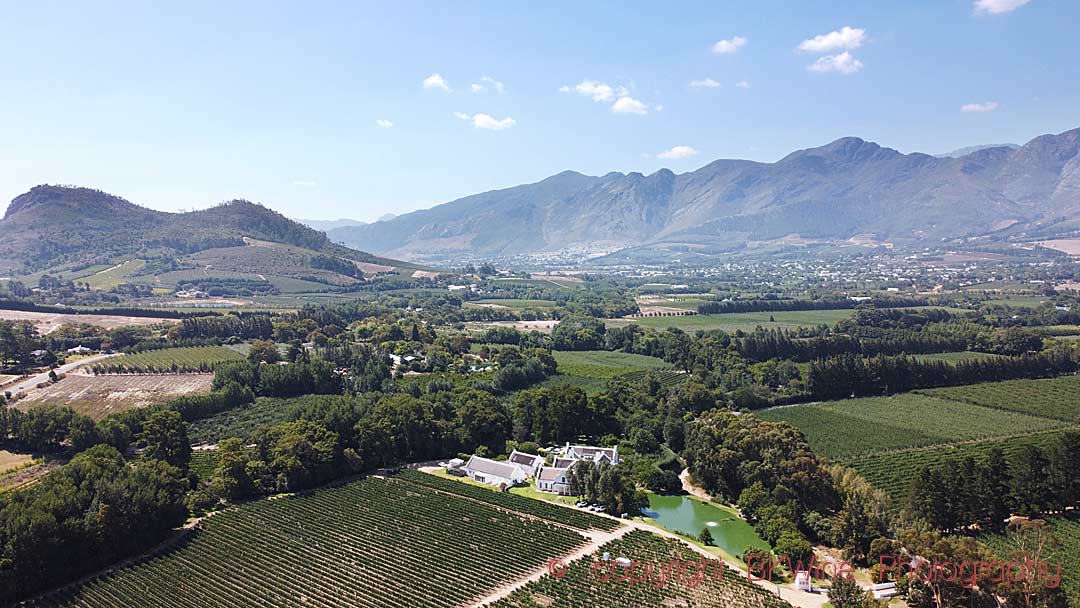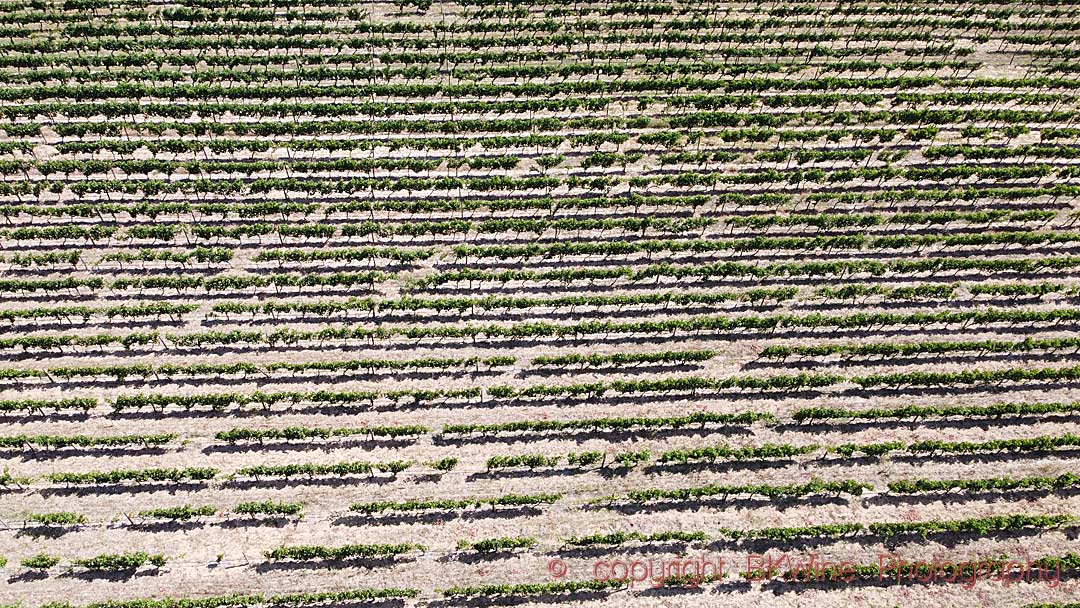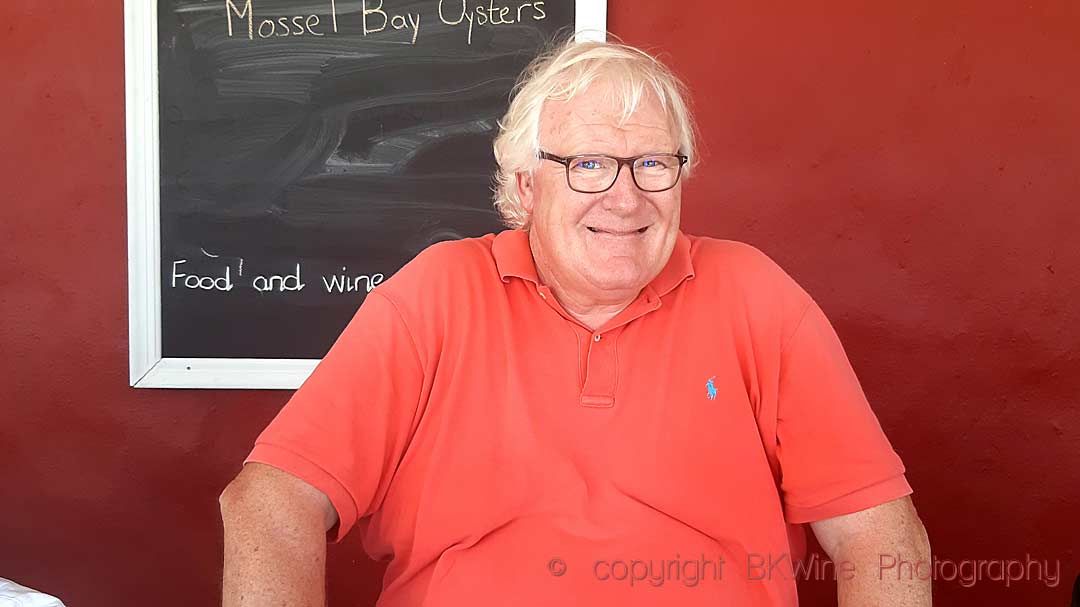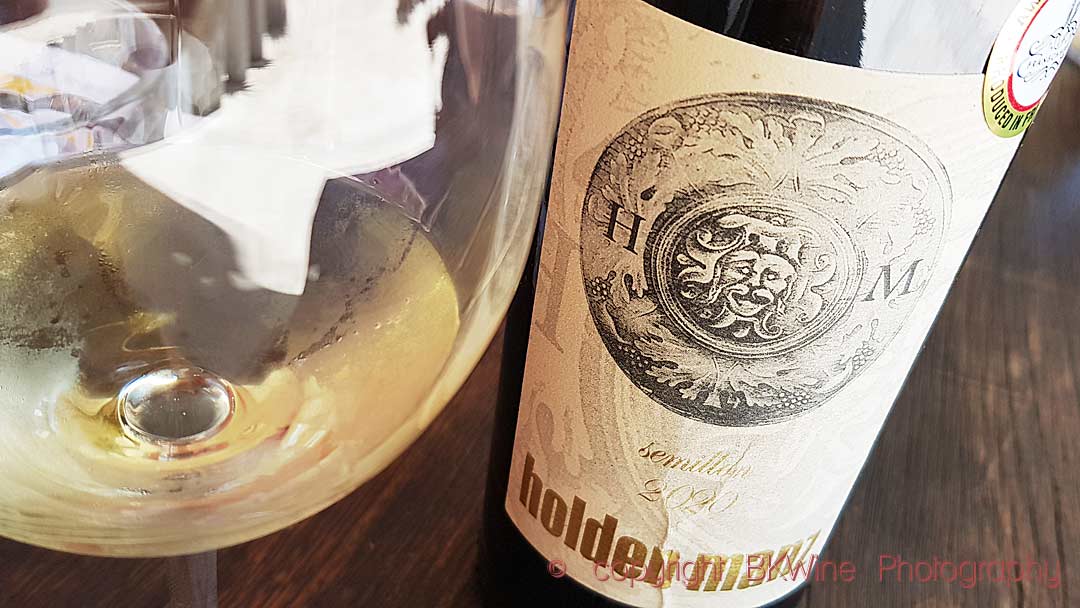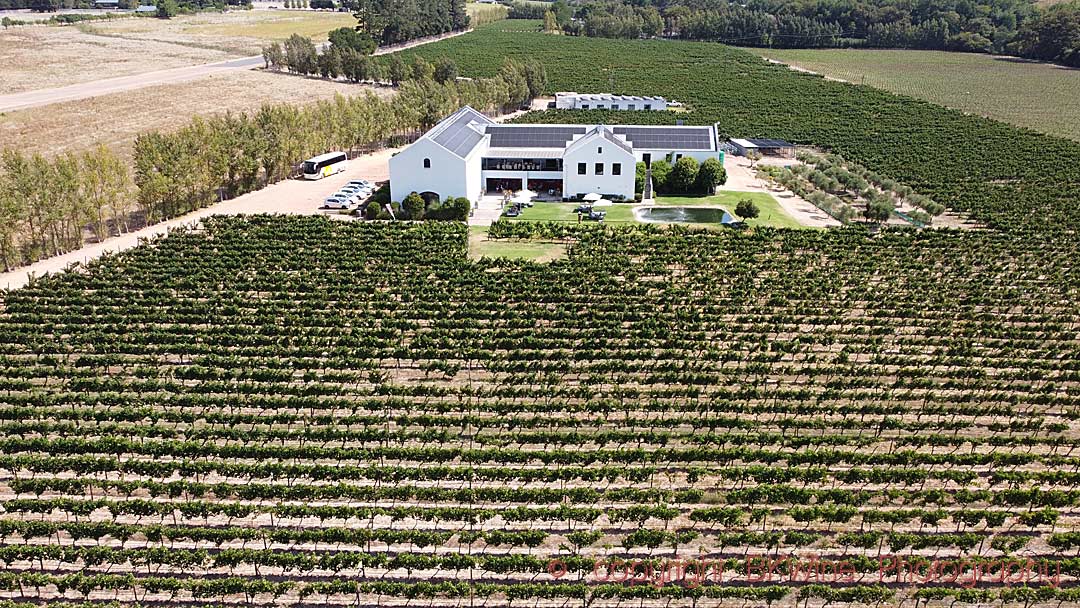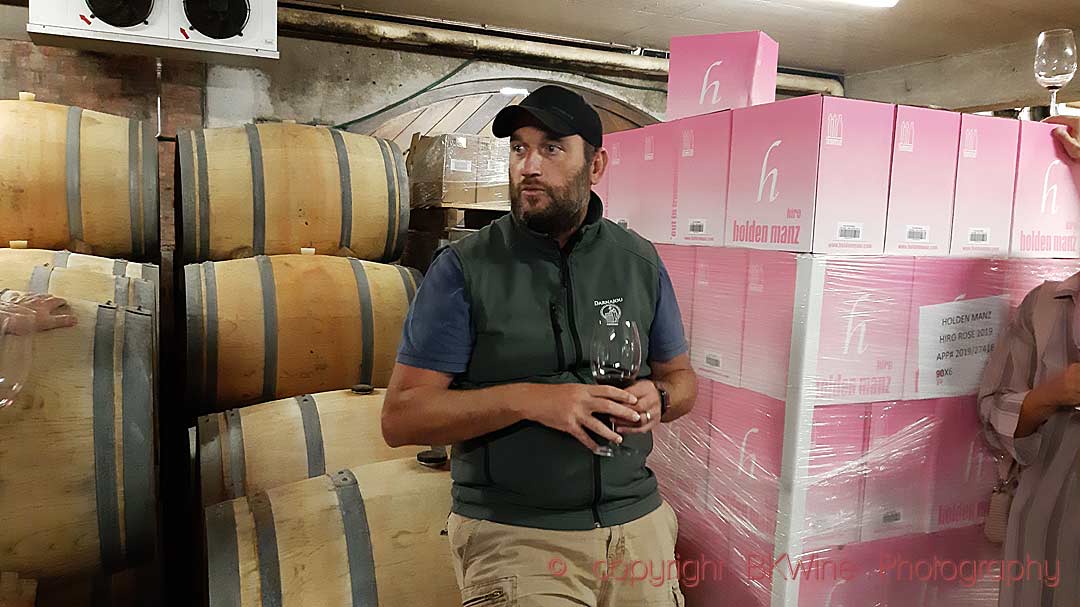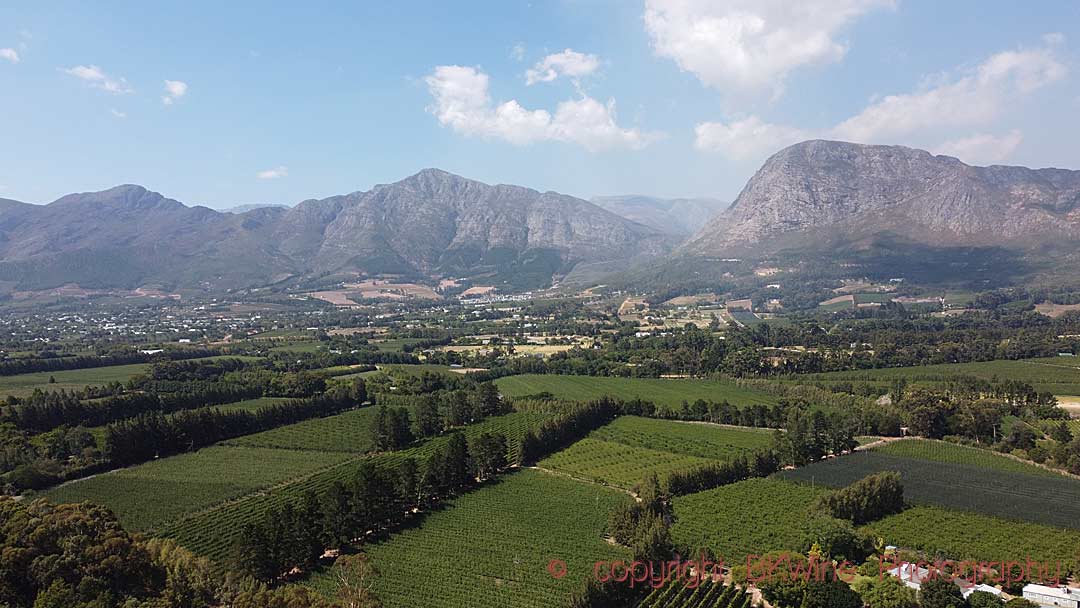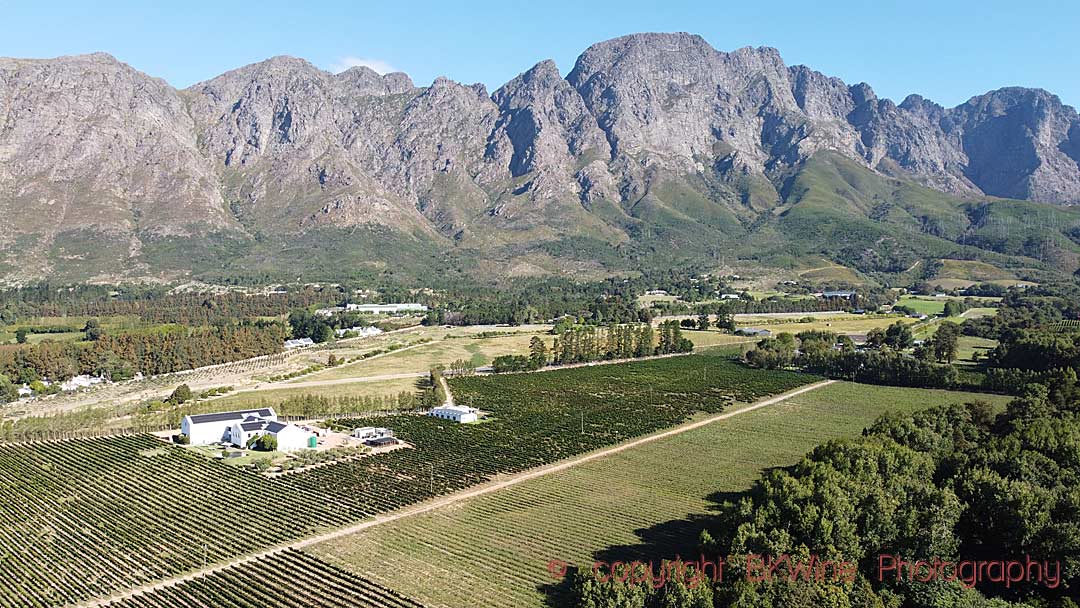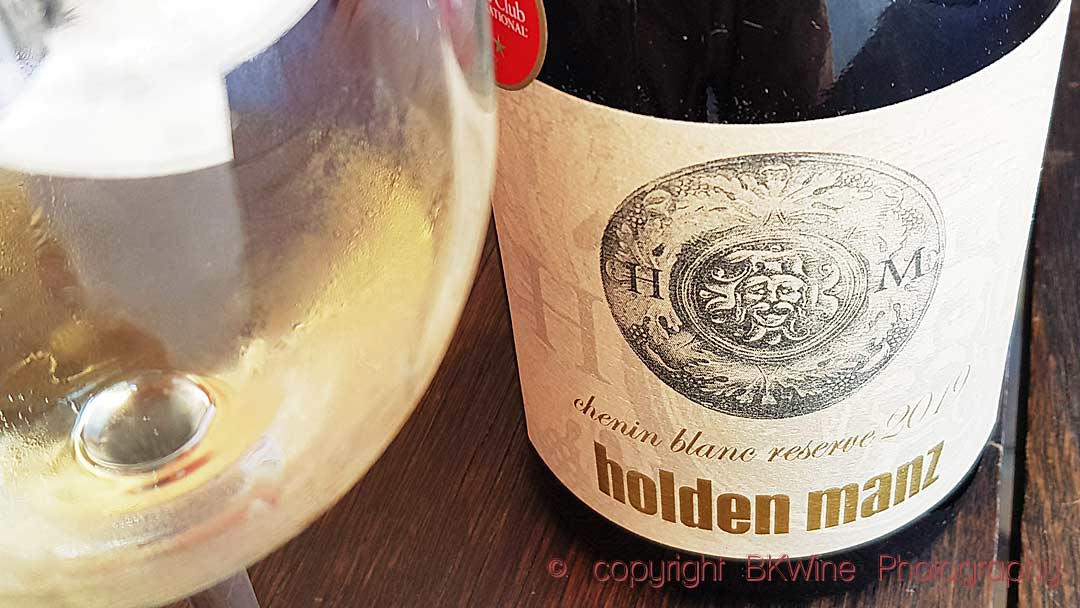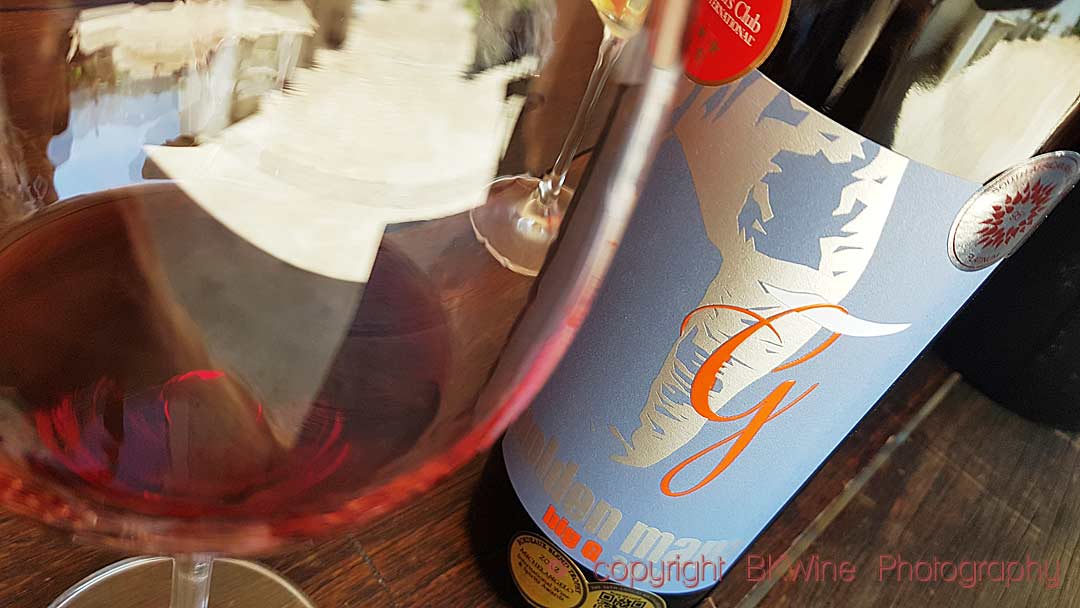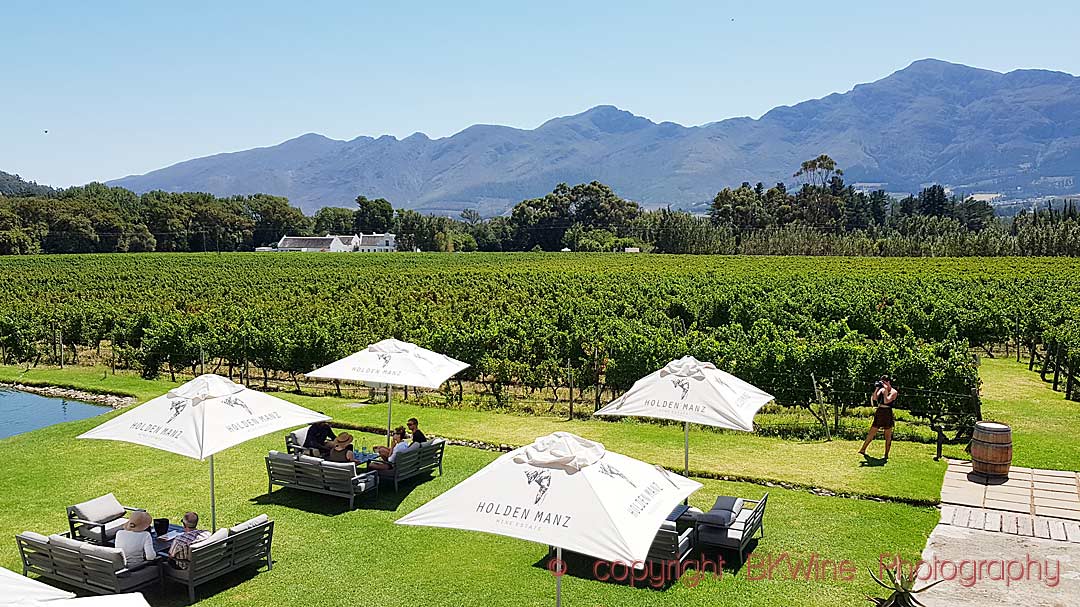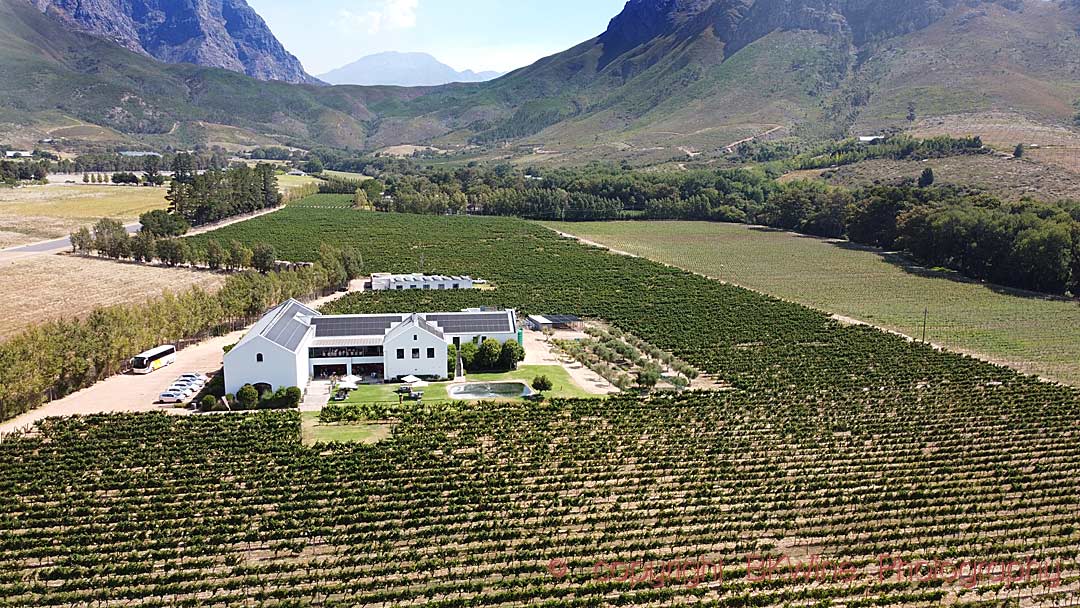Franschhoek in South Africa is famous, both for its wines and for its spectacularly beautiful location. A visit to the Holden Manz Wine Estate confirms that Franschhoek is well deserving of this fame. The wines here at Holden Manz are exceptional. And as for the beauty; you could stay here forever.
Franschhoek is a small wine region with around 3,000 acres of vineyards, far smaller than its westerly neighbour Stellenbosch. Franschhoek actually means the French corner in Afrikaans. Many French Protestants (the Huguenots) who fled persecution in Europe in the 1690s came to South Africa. Here they were allocated land in Franschhoek. Some also ended up in Paarl, a bit further north.
This is a longer version of an article published on Forbes.com.
Quick facts about Franschhoek
Franschhoek, east of Stellenbosch, is a small region, 1,200 ha, but famous, not least because of its spectacular location surrounded by beautiful mountains. The name Franschhoek, the French Corner, comes from French Huguenots fleeing religious persecution and emigrating to South Africa at the end of the 17th century. Here they settled and still many French names of wine estates and restaurants recall that background. The small town of Franschhoek has a solid reputation as a restaurant town.
Among the red grapes you find cabernet sauvignon, syrah, merlot and pinot noir. The most planted white grapes are chardonnay, sauvignon blanc, sémillon and chenin blanc.
—Excerpt from BKWine’s book “The Wonderful World of Wine”
Still today, the French influence is evident; the region is proud of its French heritage. Many wine estates have French names. The town celebrates Bastille Day on July 14 with a big fête. And despite being a small town, Franschhoek is widely known for its gastronomy and restaurants, French inspired, of course.
The region boasts some of South Africa’s oldest vineyards. But newcomers are welcome. In 2010 Gerard Holden and Migo Manz took over a vineyard in the southern corner of the Franschhoek Valley and founded the Holden Manz Wine Estate. They have renovated and rebuilt, resulting in a magnificent estate with a five-star guesthouse, a gourmet restaurant and, not least, a production of exceptional wines.
The farm was already planted with excellent grape varieties when they arrived, Gerard tells us. They now have 16 hectares of red grape varieties around the estate: cabernet sauvignon, syrah, merlot and cabernet franc. For the white wines, they buy grapes. The chardonnay comes from vineyards in Banghoek and Somerset West in Stellenbosch. “Both are relatively cool locations that complement each other well,” says Gerard. Their chenin blanc comes partly from the borderland between Stellenbosch and Paarl and partly from Paardeberg in southern Swartland.
The grapes for their superb semillon, on the other hand, come from Franschhoek, which, says Gerhard, has a perfect terroir for semillon. The variety has actually been in the Franschhoek Valley for a long time, and the country’s oldest semillon vines, over a hundred years old, are found here. It may not be a grape that people associate with Franschhoek or even with South Africa. But the fact is that it is probably the country’s oldest grape variety. At one time, semillon was by far the most widely planted grape in South Africa. Now its surface area is drastically reduced. It is a shame because semillon is a great grape, and we are happy whenever we come across a producer that takes good care of it.
Another of Gerhard’s favourite grapes is cabernet franc, which, he says, also thrives here in Franschhoek. He believes the grape has a promising future in Franschhoek, and tasting the estate’s pure cabernet franc, we cannot but agree.
The estate’s winemaker Thierry Haberer comes from France (where else, we’re in Franschhoek). Thierry grew up in Corsica, where his father made rosé wines. Thierry himself made his first rosé with his father when he was 14 years old. “France is a reference, says Thierry, “especially when working with French grape varieties, it’s natural, and our winemaking technique is the same. But it is important to adapt the work in the vineyard to the conditions here.”
Gerard and Thierry have the same ideas regarding the style of the wines. Gerard wants concentration and richness, and Thierry’s philosophy is to harvest the grapes completely ripe. He wants full phenolic ripeness, also in the skins and the seeds. Keeping the acidity in the wines is essential, and he manages to do that. There is a remarkable freshness in the Holden Manz wines. They never feel heavy despite being dense and rich. It takes a skilled winemaker for that.
For the red wines, the grapes are sorted twice; first, the entire bunches, then the individual grapes after being destemmed. Before the fermentation begins, Thierry does a cold soak for perhaps five to ten days, depending on the grape variety. He ferments all the reds with wild yeast. One of his special tricks is letting the wines rest for six months in tank after the oak ageing. “It captures the fruit and rebalances the wines,” he says.
Making good wines is essential, as is working sustainably. On the cellar roof is 65 kW of solar panels, significantly reducing the estate’s energy consumption. This is just one sustainable step out of many at Holden Manz.
We have tasted a selection of Holden Manz’s delicious wines. Prices are for purchase from the estate.
Tasting notes on the wines below the video.
Rosé
Hiro Rosé 2021, Holden Manz Wine Estate
A beautiful rosé, quite full-bodied, elegant, and flavourful with a taste of fresh peaches and strawberries. Its colour is as pale in Provence, but it tastes more. The grapes are 90% grenache and 10% cinsault. The juice is gently pressed for three hours and then has no further skin contact. 9 months of ageing in 500-litre oak barrels on its lees before bottling. (ZAR 235, ~11 euro)
White wines
Semillon Reserve 2020, Franschhoek, Holden Manz Wine Estate
Lovely mouthfeel, full-bodied, aromas of apricot and citrus, a lingering finish. Magnificent wine. If you are not already a semillon fan, with this wine, you will be hooked. The Holden Manz sémillon comes from a 20-year-old plot in Franschhoek, near the estate. The grapes are harvested early in the morning and cooled down before the whole bunches are pressed. The juice ferments with wild yeast. 25% of the juice ferments in new and one-year-old oak barrels, and the rest at a cool temperature in stainless steel tanks. The wine is bottled after eight months of ageing on its fine lees. (ZAR 385, ~19 euro)
Semillon was one of the few grapes the Huguenots brought from France when they arrived in South Africa in the 1690s. In the 1820s, 90% of South African wine acreage was planted with semillon. With the arrival of phylloxera, many of the semillon vineyards were destroyed and slowly, but surely, it disappeared. In 1995 it represented only 1% of the surface. Now the area is increasing again, albeit slowly, but there is a noticeable rekindled interest in semillon, both among producers and consumers.
Chenin Blanc Reserve 2019, Holden Manz Wine Estate
Beautiful, golden colour and an intense aroma of flowers and fresh citrus. Great mouthfeel and structure with lovely freshness and some exotic fruit in the long finish. Simply delicious. (ZAR 385, ~19 euro)
Chardonnay Reserve 2020, Holden Manz Wine Estate
Incredibly flavour intense and a wonderful mouthfeel that partly comes from prolonged contact with the lees and regular batonnage (stirring). Aromas of citrus fruit, grapefruit, white flowers, and a balanced oak taste. An attractive chardonnay that combines fullness and freshness. (ZAR 575, ~29 euro)
Red wines
Big G 2018, Franschhoek, Holden Manz Wine Estate
Big G is a powerful wine, but it has an easy-drinking feel to it, with a soft structure and generous and ripe fruit with some cedarwood in the background. Juicy and refreshing finish. Excellent wine, named after Gerard. Big G was apparently his nickname at school (and maybe after that as well). The grapes are 77% cabernet sauvignon, 16% cabernet franc and 7% merlot. (ZAR 335, ~17 euro)
Merlot Reserve 2019, Franschhoek, Holden Manz Wine Estate
A full-bodied wine with nuanced complexity, ripe plums, rounded tannins, and a fresh finish. A classic merlot with ageing potential if you want to keep it. But it is easily enjoyed now. The wine stayed on its skins for 60 days after the fermentation and was aged for 22 months in 70% new French oak barrels. (610 ZAR, ~USD 33)
Cabernet Franc Reserve 2019, Franschhoek, Holden Manz Wine Estate
Intense aroma of black currants and other dark berries. Concentrated fruit and spicy aromas on the palate. The structure is quite dense, and the tannins are well-rounded. The oak aromas stay in the background, and it finishes relatively fresh. Definitely a delicious wine. (760 ZAR, ~38 euro)
Syrah Reserve 2017, Franschhoek, Holden Manz Wine Estate
You recognize this wine as a syrah thanks to the black pepper, the exotic spices, and the ripe, dark fruit. It is full-bodied with good structure and tannins and a long and elegant finish. Magnificent syrah. (ZAR 650, ~33 euro)
Elysium 2018, Franschhoek, Holden Manz Wine Estate
2018 was the first vintage of this outstanding wine, only made in 900 bottles. In 2018, the merlot and syrah were ripe at the same time, which is unusual, and Gerhard and Thierry decided to blend them and create a top wine. The grapes were carefully hand-sorted, and only the ripest grapes were used for Elysium. Rich and concentrated but, just like the other wines, very well balanced. (ZAR 1700, 85 euro)
Travel
You can discover many of the fabulous South African wines on a wine tour to South Africa with BKWine Tours, also including Franschhoek, Walker Bay, Elgin, Stellenbosch and much else.
Travel to the world’s wine regions with the wine experts and the wine travel specialist.
The most insightful wine tours. BKWine wine tours.


